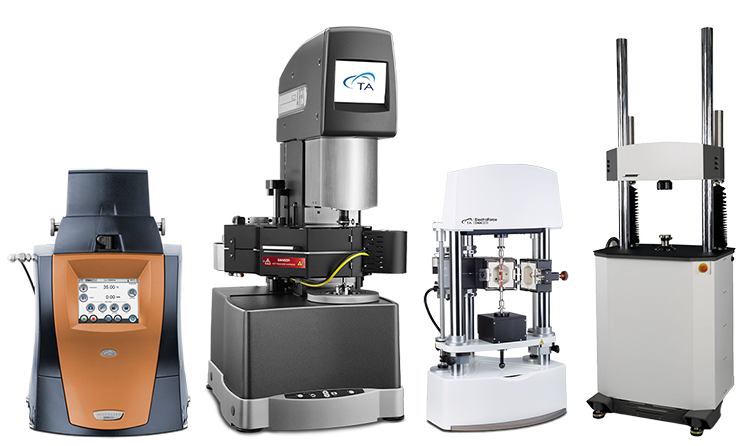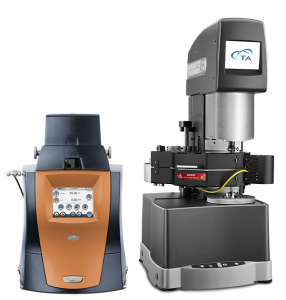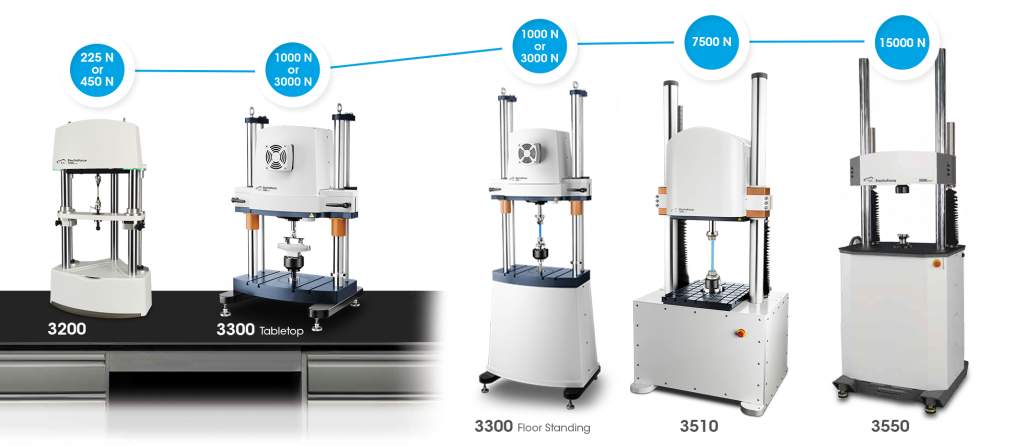What is Dynamic Mechanical Analysis?
Andy Simon
July 09, 2024
Introduction
Dynamic Mechanical Analysis (DMA) is a thermal analysis technique used to measure the mechanical properties of materials as they are deformed under periodic stress. DMA is commonly used to determine the viscoelastic behavior of polymers, composites, and other materials.

How does Dynamic Mechanical Analysis (DMA) work?
Why is Dynamic Mechanical Analysis important?
Dynamic Mechanical Analysis (DMA) Applications
DMA is used in a variety of industries and applications, including:
- Polymers and Plastics: DMA is used to study the glass transition temperature, viscoelastic behavior, and mechanical performance of polymers and plastics. This information is critical for understanding the processing and performance characteristics of these materials.
- Composites: DMA is used to evaluate the mechanical properties of composite materials, including the interfacial adhesion between different components and the overall mechanical performance. This information is important for the design and development of high-performance composites.
- Pharmaceuticals: DMA is used to study the mechanical properties of pharmaceutical formulations, including the viscoelastic behavior of excipients and active pharmaceutical ingredients. This information is important for understanding the processing and performance characteristics of pharmaceutical products.
- Food Testing: DMA is used to study the viscoelastic behavior of food products, including the texture and stability of various formulations. This information is critical for understanding the processing and performance characteristics of food products.
- Adhesives and Coatings: DMA is used to evaluate the mechanical properties of adhesives and coatings, including the viscoelastic behavior and mechanical performance. This information is important for the development and quality control of high-performance adhesives and coatings.
Dynamic Mechanical Analysis (DMA) Instrumentation
DMA instrumentation typically consists of the following components:
- Sample Holder: The sample holder secures the material being tested. It can be configured for various modes of deformation, including tension, compression, bending, and shear.
- Oscillatory Force Generator: This component applies a controlled oscillating force to the sample, causing it to deform.
- Displacement Sensor: The displacement sensor measures the material’s response to the applied force, allowing for the calculation of mechanical properties such as storage modulus, loss modulus, and tan delta.
- Temperature Control System: The temperature control system allows for precise regulation of the sample’s temperature, enabling the study of material properties over a wide temperature range.
- Data Acquisition and Analysis Software: This software collects and analyzes data from the DMA instrument, providing detailed information about the material’s mechanical properties and behavior.
Discovery DMA 850
The Discovery DMA 850 is a high-performance DMA instrument designed for advanced material characterization. It features:
- A broad temperature range of -150°C to 600°C.
- Multiple deformation modes, including tension, compression, bending, and shear.
- High sensitivity and resolution for accurate measurement of viscoelastic properties.
- Advanced data acquisition and analysis software for comprehensive material evaluation.
RSA-G2 Solids Analyzer
The RSA-G2 Solids Analyzer is a state-of-the-art instrument for measuring the rheological properties of solid materials. It offers:
- Advanced motor and transducer technology for precise control and measurement.
- A wide range of testing geometries, including parallel plate, cone and plate, and torsion.
- High-temperature capabilities for studying materials under various thermal conditions.
- Comprehensive software for detailed rheological analysis.

ElectroForce DMA 3200
The ElectroForce DMA 3200 is a versatile instrument for dynamic mechanical analysis, providing:
- Electromagnetic actuators for precise force and displacement control.
- A wide frequency range for studying materials under different dynamic conditions.
- Capabilities for testing in various deformation modes, including tension, compression, and bending.
- Advanced software for data acquisition and analysis.
ElectroForce 3550
The ElectroForce 3550 is a robust and versatile mechanical testing instrument suitable for a wide range of applications. It features:
- High-force capability for testing large or rigid samples.
- Electromagnetic actuation for accurate and repeatable testing.
- Versatility in testing modes, including fatigue, durability, and dynamic mechanical analysis.
- Comprehensive software for data collection and analysis.

Software for Dynamic Mechanical Analysis
TRIOS Software
TRIOS Software is designed for use with DMA instruments, providing a user-friendly interface for data acquisition, analysis, and reporting. Key features include:
- Real-time data visualization and analysis.
- Advanced data fitting and modeling capabilities.
- Comprehensive reporting tools for generating detailed analysis reports.
- Integration with other TA Instruments hardware for streamlined workflows.
WinTest Software
WinTest Software is utilized with ElectroForce systems, offering robust control and analysis capabilities. Key features include:
- Precise control of test parameters for accurate and repeatable results.
- Advanced data analysis tools for comprehensive evaluation of mechanical properties.
- Customizable test protocols for a wide range of applications.
- User-friendly interface for efficient test setup and execution.
Conclusion
References:
- Groenewoud, W. M. (Ed.). (2001). Characterisation of Polymers by Thermal Analysis. Elsevier Science B.V. https://doi.org/10.1016/B978-044450604-7/50005-4

